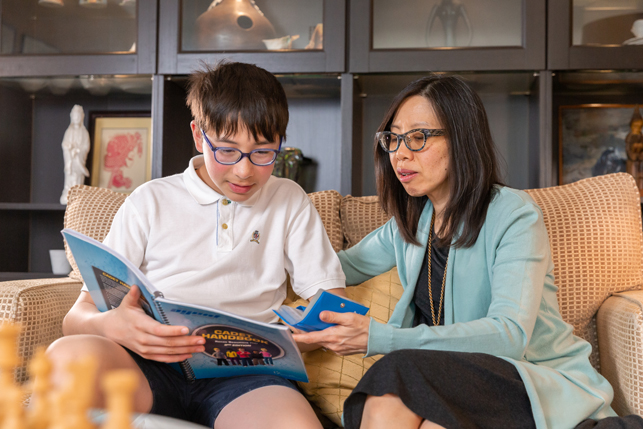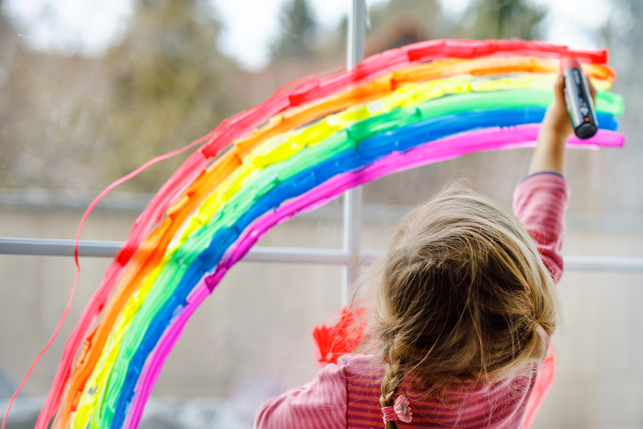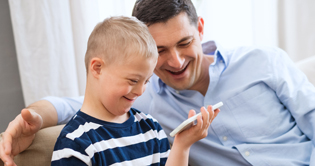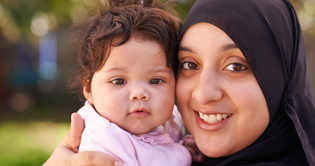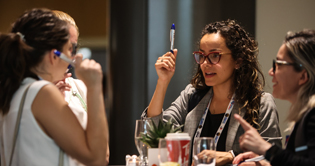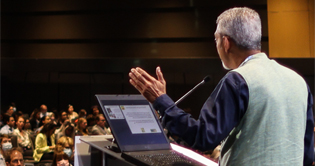Over 1000 delegates
from 52 countries

5 days of programming
10 keynote speakers and
45 symposium speakers

50 KBHN trainees honed their
skills at professional-development
workshops
Kids Brain Health Congress 2022: A Global Gathering for Healthy Development
A thriving early childhood is not only valuable in its own right, it also sets the stage for a healthier trajectory through the entire lifespan. Therefore, it was a natural fit when KBHN — a network dedicated to enabling better outcomes for children with NDDs and their families — partnered with DOHaD Canada and the International Society for DOHaD to bring the DOHaD World Congress 2022 to Vancouver. DOHaD (developmental origins of health and disease) is a field of research that examines how each person’s childhood environment influences their well-being throughout life.
In this context, the “environment” includes not only physical factors such as air quality, nutrition and prenatal exposures, but also intangible ones such as family stress and access to supports. Much of KBHN’s work revolves around improving these factors for kids with NDDs, a group whose needs have often been poorly understood and underserved.
The DOHaD World Congress, titled “Social and Environmental Disruptions in DOHaD; Successful Interventions for a Healthy Future,” was an opportunity for KBHN to share its work on a global stage while learning from diverse voices, including world-class experts from multiple disciplines.
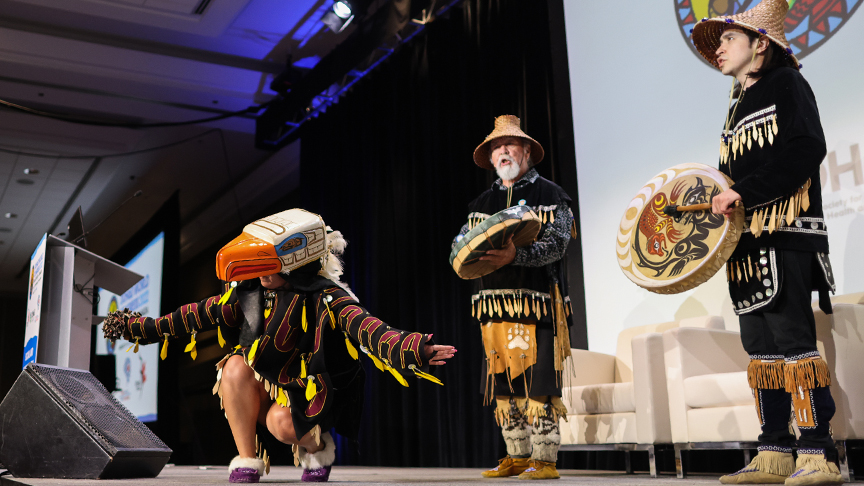
Spakwus Slolem (“Eagle Song Dancers”) from the Squamish nation welcomed attendees with a performance.
The event assembled over 1,000 attendees from 52 countries, all of them passionate about building a healthy future by giving every child a good start in life.
Worldwide Hope for Mental Health
KBHN awarded its annual Fraser Mustard Lecture to Dr. Vikram Patel, an advocate for global mental health based at Harvard Medical School. “Mental illness is one of the most intractable health challenges every country has been facing,” Patel said during his address, which attracted a full house. “We’ve often thought there’s nothing we can do for prevention. But I think that’s completely wrong.”
Half of all mental-health challenges emerge by the age of 18, and two thirds before age 25. This means that childhood and adolescence are prime times for preventing them. No single intervention can end the mental-health crisis alone, Patel explained. But there are measures that could shift the needle when used in combination. What’s more, these measures are scalable, even to low-resource settings such as the communities where Patel and others have helped to implement them in India.
Examples of such policies and programs include promoting responsive parenting, teaching emotional regulation and problem-solving skills to kids, creating healthy social environments within schools, challenging discrimination against minorities, ensuring access to basic mental-health care and providing cash transfers to low-income families.
KBHN’s own research and implementation efforts complement the work of scholars like Patel by tackling the disproportionately high incidence of mental-health challenges among children and youth with NDDs. For instance, the network is currently supporting the implementation of Secret Agent Society, a program that helps kids with autism to improve their social and emotional-regulation skills.
Disruptions and Solutions
As the world attempts to recover from the COVID-19 pandemic, families and scientists continue to see its impact on developmental health. In a keynote address sponsored by KBHN, the South Africa-based researcher Dr. Linda Richter described the interacting effects of adverse childhood experiences and pandemic-related stressors. Meanwhile in Canada, kids with NDDs and their families struggled severely to cope with the denial, delay and disruption of services during COVID, explained KBHN trainee Dr. Genevieve Currie at a plenary session. Going forward, policymakers should include the needs of people with disabilities in their approaches to emergencies, she argued.
War, famine and inequities can disrupt optimal development as well. In a panel that was open and free to the general public, Dr. Margo Greenwood, scientific director of the CIHR Institute of Indigenous Peoples’ Health, described the devastating, intergenerational impacts of the cultural genocide committed against Indigenous communities through the colonization of Canada. She also shared some of the ways that Indigenous people today are bringing cultural knowledge and strengths to lead healing initiatives.
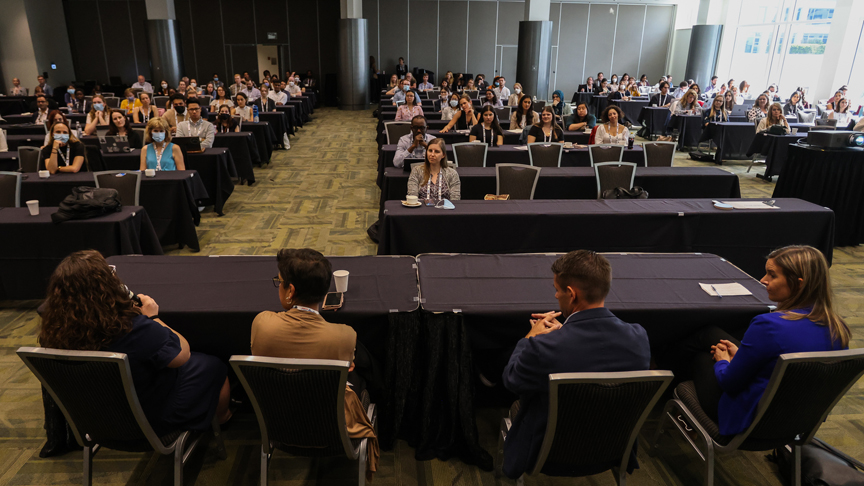
KBHN sponsored three symposia focused on areas of particular interest in neurodevelopmental research, namely: Early brain development and the origins of infant mental health; Social determinants of DOHaD; and Applications of artificial intelligence (AI) to improve health outcomes across the lifespan
During another session, KBHN-funded researcher Dr. Chaya Kulkarni and community partners such as Amber King-Robitaille of Beausoleil First Nation shared their experiences implementing Nurturing the Seed, a trauma-informed program that aims to improve the developmental and mental health of young Indigenous children.
The approach they are refining could also benefit other kids facing adversity and challenges, such as those in foster care and those living with fetal alcohol syndrome disorder. “Indigenous peoples are the ones changing the mental-health conversation in Canada,” Kulkarni emphasized.
Training and Supporting Future Generations
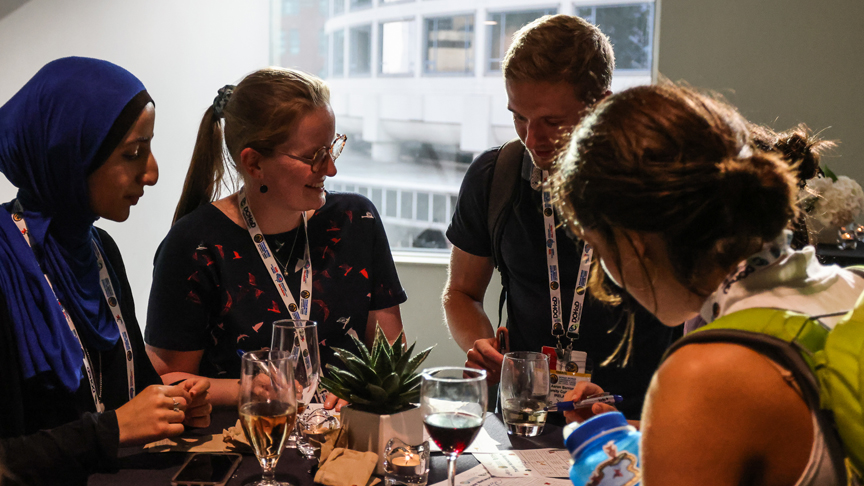
Trainees exchange contact cards at a networking event
KBHN’s annual conference is always rich in professional-development opportunities for network trainees. This year, 50 promising early-career scientists and professionals participated in two days’ worth of pre-congress workshops, which spanned topics ranging from communicating with non-scientist audiences to using big data in research. Among them were seven trainees that KBHN sponsored to attend from low- and middle-income countries.
The group also participated in networking and learning events organized by KBHN’s Policy Advisory Research Training (PART) Committee, a subset of trainees elected to enhance their peers’ experiences.
Dozens of KBHN trainees made poster presentations at the congress. One of them, Alice Soper, won a Presidential Plenary Award, given to the highest ranked abstracts judged by an international panel. Soper shared strategies for involving family members as equal partners throughout the research process, to help ensure it makes a real and relevant difference to families’ needs.
The urgency of translating research into impact was a recurring theme at the congress. After all, the DOHaD model emphasizes the transformative power of evidence-based early interventions. KBHN Board Chair Geoff Pradella anticipated this during his remarks at the opening ceremony. “By gathering as a global community,” he said, “we give ourselves the power to imagine and achieve real change for children and families, for many generations to come.”

